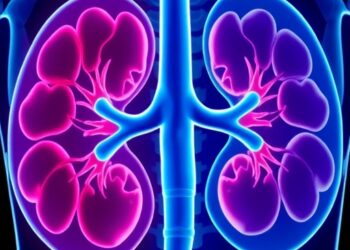BOSTON—Some women who experience menopause early—before age 40—have an increased risk for developing breast and ovarian cancer, according to research being presented Monday at ENDO 2024, the Endocrine Society’s annual meeting in Boston, Mass.
“There is also higher risk of breast, prostate and colon cancer in relatives of these women,” said Corrine Welt, M.D., chief of the Division of Endocrinology, Metabolism and Diabetes at the University of Utah Health in Salt Lake City, Utah.
Welt and colleagues began the study with the hypothesis that some women with primary ovarian insufficiency and their family members might be predisposed to reproductive or hormone-related cancers. Primary ovarian insufficiency is a condition that occurs when a woman’s ovaries stop working normally prior to age 40.
The researchers identified 613 women with primary ovarian insufficiency and 165 women who experienced early menopause from two healthcare systems in Utah that serve 85% of the population. The researchers reviewed medical records dated 1995-2021.
They used Utah Population Database genealogy information to find relatives and focused on cancer diagnoses among the women and their family members using the Utah Cancer Registry. Specifically, the researchers looked at those who were diagnosed with breast, ovarian, endometrial, colon, testicular, and prostate cancers.
They discovered that women with early menopause had two times greater risk for breast cancer. This risk was increased by almost four times (borderline risk) for ovarian cancer.
Breast cancer risk was increased 1.3 times and colon cancer by 1.5 times in second-degree relatives (i.e. aunts, uncles, grandparents, nieces, or nephews, etc.)
Prostate cancer was increased by 1.3-1.6 times in first-, second-, and third-degree relatives (i.e., great grandfathers, first cousins).
“Women who have infertility from low egg numbers or experience early menopause should make sure they are regularly screened for breast cancer, especially if they have family members with cancer,” Welt said. “Doctors who practice general medicine, gynecology and fertility treatment should be aware that early menopause increases risk for a number of diseases, and they should now be aware that breast cancer may be one of these diseases to watch for.”
BOSTON—Some women who experience menopause early—before age 40—have an increased risk for developing breast and ovarian cancer, according to research being presented Monday at ENDO 2024, the Endocrine Society’s annual meeting in Boston, Mass.
“There is also higher risk of breast, prostate and colon cancer in relatives of these women,” said Corrine Welt, M.D., chief of the Division of Endocrinology, Metabolism and Diabetes at the University of Utah Health in Salt Lake City, Utah.
Welt and colleagues began the study with the hypothesis that some women with primary ovarian insufficiency and their family members might be predisposed to reproductive or hormone-related cancers. Primary ovarian insufficiency is a condition that occurs when a woman’s ovaries stop working normally prior to age 40.
The researchers identified 613 women with primary ovarian insufficiency and 165 women who experienced early menopause from two healthcare systems in Utah that serve 85% of the population. The researchers reviewed medical records dated 1995-2021.
They used Utah Population Database genealogy information to find relatives and focused on cancer diagnoses among the women and their family members using the Utah Cancer Registry. Specifically, the researchers looked at those who were diagnosed with breast, ovarian, endometrial, colon, testicular, and prostate cancers.
They discovered that women with early menopause had two times greater risk for breast cancer. This risk was increased by almost four times (borderline risk) for ovarian cancer.
Breast cancer risk was increased 1.3 times and colon cancer by 1.5 times in second-degree relatives (i.e. aunts, uncles, grandparents, nieces, or nephews, etc.)
Prostate cancer was increased by 1.3-1.6 times in first-, second-, and third-degree relatives (i.e., great grandfathers, first cousins).
“Women who have infertility from low egg numbers or experience early menopause should make sure they are regularly screened for breast cancer, especially if they have family members with cancer,” Welt said. “Doctors who practice general medicine, gynecology and fertility treatment should be aware that early menopause increases risk for a number of diseases, and they should now be aware that breast cancer may be one of these diseases to watch for.”
###
Endocrinologists are at the core of solving the most pressing health problems of our time, from diabetes and obesity to infertility, bone health, and hormone-related cancers. The Endocrine Society is the world’s oldest and largest organization of scientists devoted to hormone research and physicians who care for people with hormone-related conditions.
The Society has more than 18,000 members, including scientists, physicians, educators, nurses and students in 122 countries. To learn more about the Society and the field of endocrinology, visit our site at www.endocrine.org. Follow us on Twitter at @TheEndoSociety and @EndoMedia.




